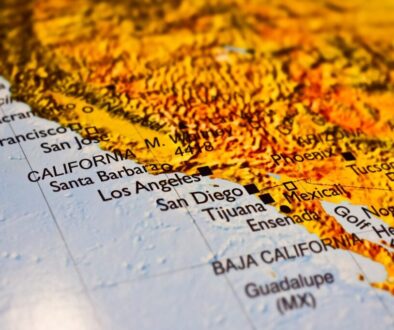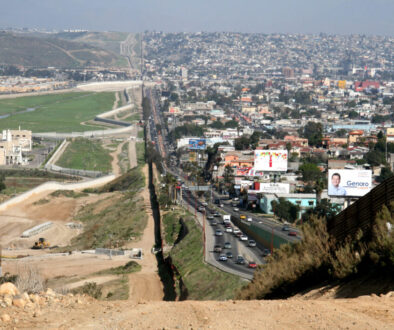Renegotiating NAFTA with Elections on the Horizon
Renegotiating NAFTA with Elections Looming May Prove to be a Difficult Task
As 2017 comes to an end, there is much speculation as to how the Renegotiating NAFTA with elections taking will affect Mexico and the United States during the coming year. Politicians and international commerce experts alike both agree that it will very difficult to conduct effective talks for renegotiating the NAFTA with election season in full gear.Antonio Garza an attorney of the law firm White and Case in Mexico City, believes it is not likely that the Canadian, Mexican and US negotiators will reach an agreement on a renegotiated version of the North American Free Trade Agreement in advance of the upcoming election season. Luis Videgaray, Mexico’s Secretary of Foreign Relations, is also of the opinion that it will difficult at best to come up with a solid and well-made trade agreement should negotiations carry over into the political seasons of the Mexico and the US. The mid-terms in the US will take place next year during the month of November, while the Mexican presidential election will take place prior to that on July 1.
Manuel Lopez Obrador Speaks
Populist, nationalist, left-wing political candidate, leader of the National Regeneration (MORENA) party, former mayor of Mexico City, and current leader for the election to the Mexican presidency Manuel Lopez Obrador, or AMLO, as he is also known, believes that NAFTA negotiations and elections cannot effectively take place at the same time. He is of the opinion that, under these circumstances, to produce an outcome that will be beneficial for each of the three nations renegotiating NAFTA with elections in process will not be a possibility. He also believes that, due to the unpopularity and lack of mandate of the current administration led by Enrique Pena Nieto of Mexico’s PRI party, any accord reached before election season begins in his country will have been negotiated from a position of weakness rather than of strength. Although he was against the agreement in the past, Lopez Obrador has stated recently that he is now in favor of the NAFTA, but would like to renegotiate it with his own team should he be the victor in July’s presidential race. The chapter on agriculture is the one in which he feels that changes must be made. The interest of many of Mexico’s farmers were adversely affected by the trade deal.
Additionally, members of AMLO’s MORENA, or National Regeneration party would like to see the NAFTA renegotiation addressed in a popular referendum. Norma Rocio Nahle Garcia, a MORENA party legislator, believes that the Mexican economy is now “too open”, and that the citizenry’s opinion should be expressed through a popular vote. The negotiators from the Mexico, the US and Canada also speculate that NAFTA renegotiation talks could become a “political punching” bag should they carry over into the July and November elections. Although US officials would like to see to it that NAFTA renegotiations and elections do not come into conflict, they also believe that it is highly improbable that anything concrete will be accomplished by the end of the current year. In public they have expressed their desire that a renegotiated pact can be firmed up by the end of the first quarter of 2018.
Speed May be of the Essence
During the November round of negotiations and during talks to be held during the first three months of the coming year, the administration of Donald J. Trump will be in a hurry to make measurable progress. In comments made in public, members of Trump’s negotiating team “have made it abundantly clear that they would rather deal with NAFTA before Lopez Obrador starts delivering his nationalist and populist message every day on the campaign stump.” Additionally, any negotiations post-Mexican election would also take place during the five month lame-duck period in Mexico prior to the newly elected government taking office This would make the process even more difficult to make. Furthermore, the US mid-term elections, which would take place during the aforementioned lame-duck period, would result in making the process even more difficult to navigate.
Those that are experts in international trade generally believe that, no matter what the time frame is, the North American Free Trade Agreement (NAFTA) will be successfully renegotiated. Despite the fact Trump has heavily criticized the NAFTA and has blamed it for a sixty-two billion dollar commercial deficit with Mexico, the agreement has been the impetus responsible for the tripling of trade between the NAFTA countries since coming online in the early 1990s. Most of the United States’ trade deficit with its southern neighbor resides in the automotive industry. The United States’ farm economy has a trade surplus with its NAFTA partner.
We are confident that the Trump administration will persist in renegotiating the NAFTA with elections looking, even though regular threats to pull out of the treaty have been expressed. Although Trump points the finger at the North American Free Trade Agreement for the shuttering of production facilities located throughout the United States, he also concedes the fact that the commercial accord has been good for the nation’s farmers. These rural voters supported his campaign for the post, and now support his presidency.
In all likelihood, a deal will be made that specifies updated rules of origin requirements for vehicles made in the US, Canada and Mexico. It is the belief of the Trump administration the current figure of 62.5% is not high enough. The US negotiating team is pushing for eighty-five percent. At the end of renegotiations, however, it is probable that the negotiators from the three nations will split the difference and implement rules of origin for the automotive sector that are somewhere in the 70% – 75% range.
Renegotiating NAFTA with Elections Around the Corner
Because NAFTA renegotiating NAFTA with elections looming is a difficult proposition, we believe that the talks will be totally wrapped up at some time during 2019. Although there will be a degree of uncertainty during the period prior to complete renegotiation, companies will still make the choice to site manufacturing facilities in Mexico due to the large differential in the wages between American and Mexican workers.





